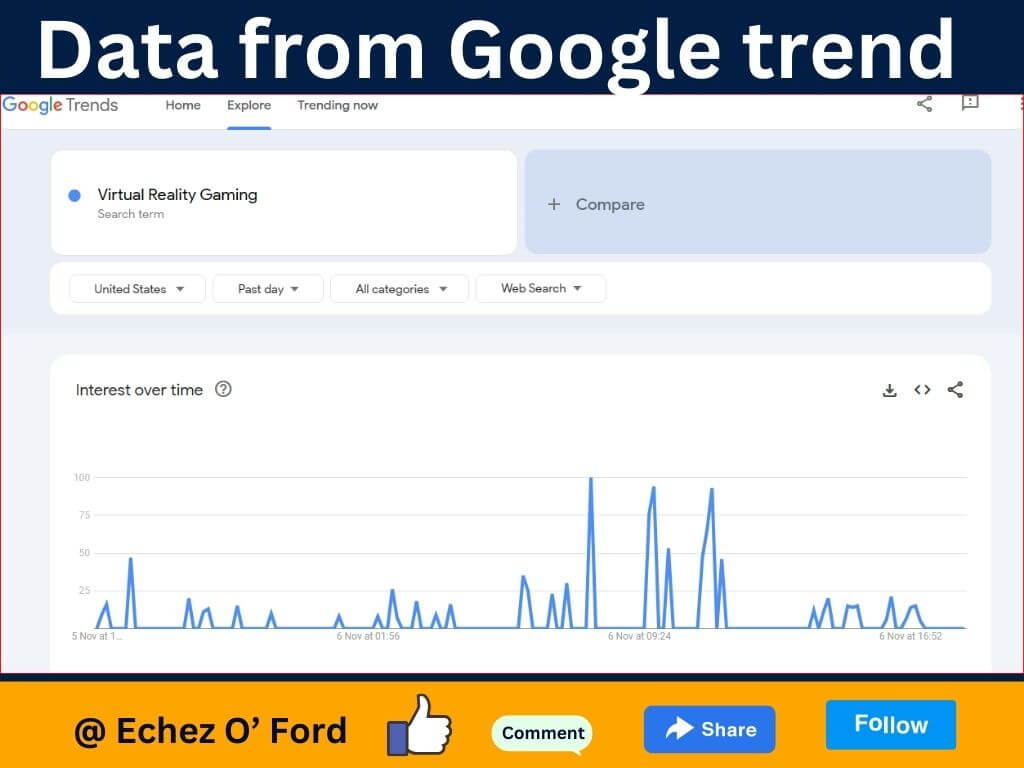Please Follow us on social media >>>>
14 BEST WAYS TO CHOOSE A NICHE
To succeed online, you must know how to choose a niche.
Choosing the right niche for your blog is a crucial step in starting a successful blogging, freelancing, and digital marketing journey. But blogging is the only reason you will need to choose a niche. If you are an Amazon Product seller, a Kindle publisher, or anything similar, you will need to define what your niche is.
You will often hear it said that you should choose what you are passionate about. If your goal is to make money online, you need to be passionate about what you do.

True, but that is not enough. I know this from personal experience. There are two ways to do it.
My name is Echez O’Ford. A digital marketer and entrepreneur.
- Choose what you are passionate about but do more than that.
- Choose what has monetary potential, that you can learn along the line.
- Choose what has the growth potential.
If you have all under one umbrella, you have hit a gold mine. So, I will show you 10 simple ways to choose a niche that always works no matter your level of experience.
Besides the three items above, there are other factors you need to take into consideration before deciding on what niche to go into.
Number 1: Passion and Interest In a Niche:
Choose a niche that you are genuinely passionate about and have a keen interest in. This will keep you motivated and enthusiastic about creating content for your blog or platform in the long run.
If you hate dogs, what is the point of running a blog on how to train dogs? You will be more at home talking about golf as a business if you are a golfer.
When you choose to make recommendations for Golf shoes, your audience will trust you more. Any time you critique a golf product, your audience will see it as value.
There are days when you will not feel like it, but your passion for the niche will keep you going on those down moments. That is the place of passion in choosing a niche.
Use Google’s autosuggest to handle your initial niche search inquiry. Come up with keywords that describe your passion and put those into the search bar of Google. Pay attention to the suggestions by Google and take your search from there.

Number 2: Consider the Audience Demand for Your Niche:

No matter how passionate you are about a given niche, if there is no market for it, you will not make money.
So it is important to thoroughly research the demand and popularity of different niches to determine if there is a substantial audience interested in the topic.
Go beyond what you like. Look for niches that have a significant number of people searching for information or seeking solutions to problems related to that niche.
Use platforms like Facebook if you are going to sell on Facebook. Or if your product, service, and area of expertise is popular among the Gen Z.
When you identify a community of people looking for a solution to a pain point, you have found yourself a niche.
TOOLS FOR CHOOSING AND ASSESSING AUDIENCE DEMAND:
To assess the demand and popularity of different niches, several tools can be used. You can choose what works for you.
Related Posts
And sometimes a combination of one or more tools can help you make an informed decision.
- Google Trends: Google Trends is a free tool that allows you to analyze the search volume of a particular keyword or topic over time. It can help you identify if the interest in a niche is increasing, decreasing, or stable, which can give you insights into its popularity.
- Keyword Research Tools: Tools like Google Keyword Planner, Ahrefs, SEMrush, and Ubersuggest can help you identify the search volume and competitiveness of keywords related to your niche. These tools provide data on keyword search volume, keyword difficulty, and related keywords. With these data, you can gauge the demand for a particular niche.
Social Tools
- Social Media Monitoring Tools: Tools like Brandwatch, Mention, and Hootsuite are designed to track conversations and mentions related to a particular niche on social media platforms. These provide insights into the level of discussion, engagement, and interest in a niche among your target audience.
- Competitor Analysis Tools: SEMrush, Ahrefs, and SimilarWeb are good at analyzing your competitors’ websites. What you are looking for with them is insights into their traffic, rankings, and content strategies. This will give you an idea of the level of competition in a niche and the popularity of similar blogs or websites.
- Audience Research Tools: TPoppular among them are Google Analytics, Facebook Audience Insights, and SurveyMonkey. They all can help you gather data about your target audience’s demographics, interests, and behavior. This is handy to understand if there is a substantial audience interested in the niche you are considering.
- Niche-specific Research: You want to narrow things down at some point. That is where Conducting research specific to the niche you are considering comes in. This can include reading blogs, forums, social media groups, and other online communities related to the niche to understand the level of interest, engagement, and demand among the target audience.
The next thing to look out for in choosing a good niche is competition.
Because some niches are very competitive, you will have to evaluate and analyze the competition of the niche you are going into.
You don’t have to do it manually. Below are some cool tools to save you. (You may have noticed that am a preacher of smart tools. Life is easier with the right set of tools)
Number 3: Carry Out Niche Competition Analysis:
Niche competition analysis is the process of evaluating and understanding the competitive landscape within a specific market or industry segment.
It involves researching and assessing the strengths and weaknesses of businesses and websites operating in that niche.
This analysis helps identify
- key competitors,
- their market share, and
- the strategies they employ to attract and retain customers.
Conducting a niche competition analysis, helps you make informed decisions, develop effective marketing strategies, and uncover opportunities for growth in your target market.
Now let’s go into how you can assess the competition in your chosen niche.
How to Assess the competition in the niche you are considering.
Understand that if the competition is too high, it might be challenging to break through and establish your business.
On the other hand, if the competition is too low, it could indicate that there may not be a substantial audience or market for that niche.
So, you should look for a fair amount of competition. While you are on it, be on the lookout for what the competition is not doing well.
When you identify a market lapse, fill the need and bring some value to the market. With this, you stand the chance of claiming your ground in the sphere of things.
Number 4: Before You Chose a Niche; Pay Attention to Profitability Potential Before:
Don’t just jump into the exercise of choosing a niche unless you have taken the time to consider how profitable the niche is.
Consider the potential for monetization in your chosen niche. Even if you are choosing a niche for the joy and fun of being in the niche, at some point, you will need to generate some revenue.
Some niches may have higher earning potential through avenues such as
- sponsored content,
- affiliate marketing, or
- selling products or services,
As the above holds, other niches may have limited options for monetization. So give this some serious thought before going full throttle on any field.

Number 5: Go For a Niche With Longevity and Evergreen Content:
I always tell my students this: Choose a niche that has longevity and can sustain interest over time.
Avoid niches that may be trendy or seasonal, as they may lose popularity quickly. Look for niches that offer evergreen content, which means the content remains relevant and valuable to readers over an extended period.
Echez O’Ford
Let’s take the Virtual Reality Gaming as an example: You decide to create content about virtual reality gaming.
It’s a hot trend at the moment, and you start with posts about the latest VR headsets, game releases, and reviews.
Your articles gain some traction, but over time, you notice a decline in interest. Newer technologies and trends start overshadowing virtual reality gaming, and your content quickly becomes outdated.

It’s a niche that’s trendy but lacks longevity as seen in the trend chart above. (This is just an example)
Contrast that with the Holiday Travel Destinations: On the other hand, you also consider creating content about holiday travel destinations.
You research and create articles about timeless destinations, travel tips, cultural experiences, and hidden gems.
These articles continue to attract readers, and even after a year or two, they’re still relevant. The travel niche offers evergreen content because people will always be interested in vacation spots, travel planning, and unique experiences.
So what is the difference Between the Two Niches?
- Longevity: The “Holiday Travel Destinations” niche has more longevity. People will always have an interest in traveling, exploring new places, and planning vacations. In contrast, the “Virtual Reality Gaming” niche is trendy, and its popularity may wane over time as newer technologies emerge.
- Evergreen Content: In the “Holiday Travel Destinations” niche, your content remains valuable over an extended period. Your articles about travel tips, cultural insights, and destination recommendations will continue to attract readers, even years after their initial publication. In the “Virtual Reality Gaming” niche, your content quickly becomes outdated as new VR technologies and games replace the old ones.
So, you see, you must pay attention to the long-term needs of any niche you want to choose. Now let’s look at why you should consider having a unique voice.
Number 6: Utilize Your Unique Voice In Niche Selection:
Consider how you can bring your unique perspective and voice to the niche. Building a personal brand and establishing yourself as an authority in your niche is a key factor in the success of your blog, brand, or business.
But skills like this do not just come about. here are a few things you can do to have a unique voice:
Achieving and showcasing your unique voice in your niche is a critical step in building a personal brand and becoming an authority in your chosen field.
Here’s How You Can Achieve Unique Voice in Your Nichethis:
Know Your Niche Inside Out: To stand out in your niche, you must have a deep understanding of it. Research extensively, keep up with the latest trends, and stay informed about what’s happening in your field. This is the foundation of your unique perspective.
Identify Your Unique Angle: What sets you apart from others in your niche?
It could be your personal experiences, expertise, or a specific viewpoint. Identify this unique angle and make it a central theme in your content.
Share Personal Stories and Anecdotes: Personal stories can be powerful tools to connect with your audience.
Share your experiences, successes, failures, and lessons learned. This adds a human element to your content and makes it relatable.
Develop Your Writing Style: Your writing style should be distinct and reflective of your personality. Whether it’s humor, authenticity, or a formal tone, your readers should recognize your work by your writing style.
A good place to start building your personal brand is on LinkedIn. There you will meet a lot of other professionals with similar interests.
Number 7: Do Not Neglect Audience Engagement:
Don’t neglect the potential of audience engagement. Evaluate the potential for engagement with your target audience.
Look for niches where readers are likely to comment, share, and interact with your content, as this can help you build a loyal and engaged audience.
Also, consider the platforms your audience hangs out, and take your content to them where they are most likely to be found.
If your niche is meant for teens and younger generations, a good place to look for them is on platforms like tick-tock for short videos, and Instagram for pictures-related content. Now you’re getting the hang of it all.
Number 8: Use Your Skills and Expertise Whle Choosing a Niche:
When you are researching your niche, use everything you have. That includes your skills. Consider your skills, expertise, and knowledge when selecting a niche as this will come in handy.
Choosing a niche that aligns with your skills and expertise can help you create high-quality content and establish yourself as an authority in your chosen niche.
I enjoy writing a lot, it feels like a hobby for me. So many of my business involve some form of writing.
How to do it? Sure, start with the following steps:
- Take inventory of your strengths, skills, and experience.
- Consider what services or expertise you can offer as a freelancer, such as writing, graphic design, web development, social media management, or other fields you excel in.
You can always learn and add to your skill set.
Number 9: Flexibility for Expansion:
A good niche must allow for some flexibility and expansion in the future. You may want to diversify your content or pivot to related topics as your blog or care grows, so ensure that the niche you choose has room for potential expansion. Don’t keep yourself so much thin.
Number 10: Develop Your Brand:
Building a strong brand is crucial for your freelance career and blog. Choose a brand name, create a logo, select colors, and develop an overall aesthetic that aligns with your niche and target market. Your brand should reflect your personality and expertise.
To create a brand logo yourself, use tools like Canva, Wix, and Logomaker.
Number 11: Build Your Online Presence:
At this stage, you must have narrowed your niche search to about one or two. Or you may have decided on a niche to pursue.
So now is the time to get to work and start building your online presence. You can start by creating a simple website. There are a lot of free resources and platforms to build your website on.
But the best will be to have a self-hosted domain. We have a department here that can handle your website creation almost free of cost.
Utilize social media platforms and other relevant online channels to build your online presence. Share your blog posts, engage with your audience, and establish yourself as an expert in your niche.
Networking and connecting with potential clients will also help you grow your business and brand.
Number 12: Create a Niche Portfolio
The best place to have your portfolio is on your website. Your website will serve as your online portfolio and blog platform.
When you create a professional website that showcases your skills, services, and portfolio it will make your work easy to build your brand. But make sure your website is user-friendly, visually appealing, and mobile responsive.
If you don’t want to spend all your money creating websites, go check out this simple website creation service. It has everything you need to get started today.
Number 13: Plan Your Content Strategy:
Every niche needs content to be relevant in this AI age we live in. So, create a comprehensive content strategy for your blog, business, and brand.
Decide on the type of content you will create, such as
- informative blog posts,
- case studies,
- Videos
- tutorials, or
- industry news.
Plan your content and aim to provide value to your target audience. It does not take forever to create good content if you know how to do it. You can create 2000 words in thirty minutes with a simple strategy.
Number 14: Provide Exceptional Customer Service:
If you have been putting everything we talked about here into practice, you should have a business by now.
Your reputation as a freelancer, a digital marketer, an affiliate publisher, or any niche you have chosen is crucial.
To maintain it, you must provide exceptional customer service, meet deadlines, and communicate professionally with your clients.
Positive testimonials and referrals from satisfied clients will help you build a solid reputation and attract more clients.
Now, you have everything you need to choose and succeed in any niche, so, go out there, choose a niche, and make some money.
Kindly subscribe to our weekly newsletter, so that you don’t miss any of our posts.
If you share this now, you will be helping another person benefit from the content.
When you are done choosing a niche, go check out this resource on the free and paid tools for every freelancer.








[…] guide assumes that you have already chosen a niche and probably have a business going on. Although it is not a requirement, it will help you to come […]
[…] 14 BEST WAYS TO CHOOSE A NICHE […]
[…] Decide what business you want to do. In other words, choose a good niche. […]
[…] If you are wondering how to pick a profitable niche, see this resource on the 14 best ways to choose a niche. […]
[…] my students ask me about how to chose a niche, one of my major answers is: Look for a topic you tan talk about for 30 minutes without […]
[…] This is with the assumption that you have already chosen a good niche. If you have not, here are your 14 best ways to choose a niche. […]